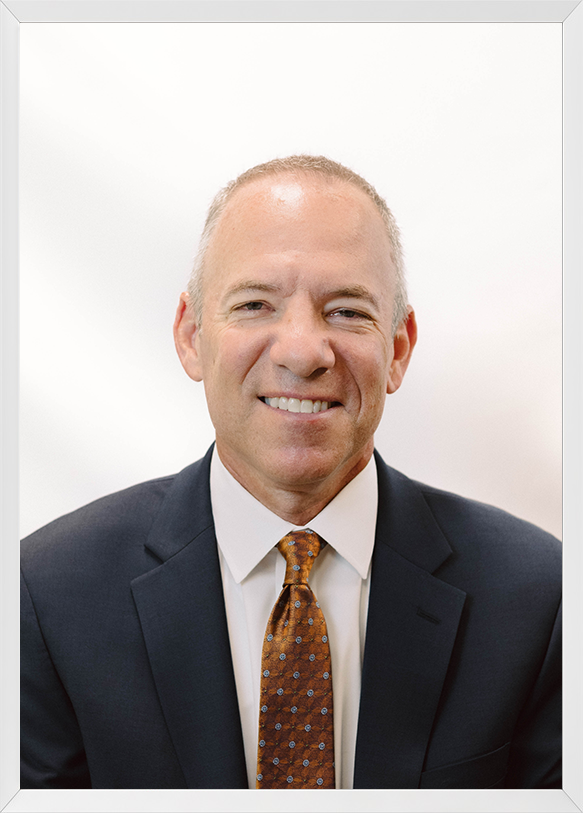Wakefern, the privately owned cooperative celebrating its 75th year, has had to deal with supply chain issues and spiking inflation since the beginning of the pandemic, just as its many competitors have. According to Executive Vice President Chris Lane, the company has navigated the pandemic by investing in automated checkout lanes, robot delivery carts that reduce labor costs, and expanded higher-margin private-label store brands. And with $17.8 billion in sales in the last fiscal year, Wakefern forecasts brisk 2022 sales even as restaurant dining rooms are filling up again.
NJ Advance Media caught up with Lane to talk about how the past two years have reshaped Wakefern’s business. Here is the Q&A session as reported by NJ.com in late March.
With COVID lockdowns and mandates eased, and restaurants reopened, will sales driven by strong eat-at-home demand continue?
“We think it’s going to continue. Pre-pandemic, it was the first time ever eating out exceeded eating at home. The pandemic brought families back together. We believe that will continue. At what pace will that continue? I don’t know the answer to that, but we feel good that the pandemic has brought families together and eating at home is important for families and society as a whole.”
How is Wakefern coping with inflation, which was up 7.5% last month year over year?
“Every commodity, basically, has been on some type of allocation for the past couple of years. Because of Wakefern’s experience and relationship with vendors, we’ve been able to navigate extremely well. We really focus on our weekly ads, promotions and digital coupons.”
Not all food inflation is equal. What products are cheaper?
“Off the top of my head there may be a few that are deflationary, but I can’t think of them. Beef, bacon, flour. Those are running at double digits. Every commodity has enormous pressure being put on it. Also there’s labor, the pandemic and the supply chain. We’ve not seen this type of inflation in 40 years.”
Generally, profit margins in supermarkets are between 1 and 3%, depending on the item. How has inflation impacted Wakefern’s margins?
“I won’t get into specific margins for competitive reasons. Inflation certainly puts pressure on margins. We try to navigate that through all the experience we have – procurement, logistics and warehouse management – to try to keep the retail price as low as we can. The consumer will let us know how much we can pass on. We look constantly at market share and our pricing index vs our competitors. The consumer today has many choices.”
Unlike years past, does the internet allow consumers, Wakefern and your competitors to all compare prices in real time?
“Consumers can go to any number of different online apps to look at prices. I think that keeps us all striving to deliver the best balance that you can. If you are not delivering the best value, consumers will go elsewhere. There’s no question about that.”
Does New Jersey’s population density and high sales volumes help Wakefern negotiate better prices from suppliers?
“The expertise that we have in operating this area, and dealing with consumer package goods companies, growers and distributors, it does make it a little easy. Our density and volume does help us in dealing with a supplier. When you walk into a ShopRite or any of our banners, you can get what you need. In our marketplace, we’ve stood tall.”
Why is ShopRite investing so aggressively in technology, like expanding autonomous and automated checkout, testing robotic grocery delivery in Pennsylvania and launching a QuickCollectGo! self-service pickup pod for online orders in New Rochelle, NY?
“Customers have been asking for that. Autonomous checkout, even QuickCollect, the pandemic has accelerated that beyond our wildest imagination. We’re trying to make sure we leverage as much technology as possible to make our retail associates do what our customers expect them to do.”
Why was automation a trend in the U.S. and Europe even before the pandemic figured in a shortage of checkout clerks?
“For the consumer, if you look at a grocery store, the most difficult area for years has been the checkout line. We have very busy stores and that checkout process can be frustrating. The millennials and younger shoppers prefer self-checkout. We’ll see how this plays out post-pandemic.”
Has Wakefern’s pandemic era recruitment and retention of workers improved or remains challenged?
“One of the advantages we have is a tremendous number of long-term associates. That has helped us navigate what we believed to be temporary labor issues. We had a belief we would start to see some relief. And we’re starting to see that. We believe we’re on a path to staff our stores and deliver for our customer base as we always have.”
